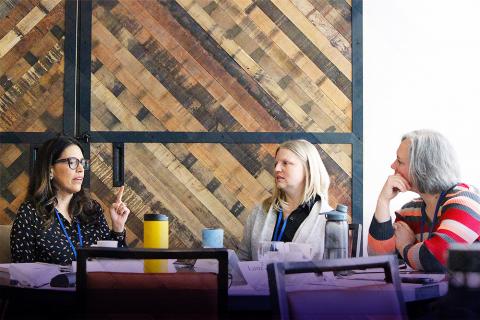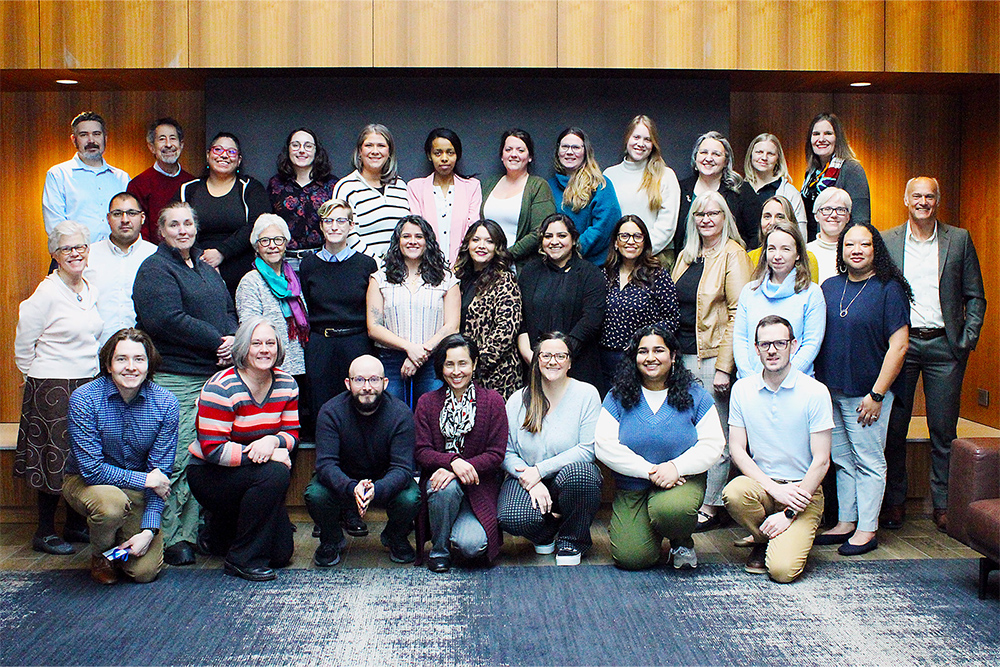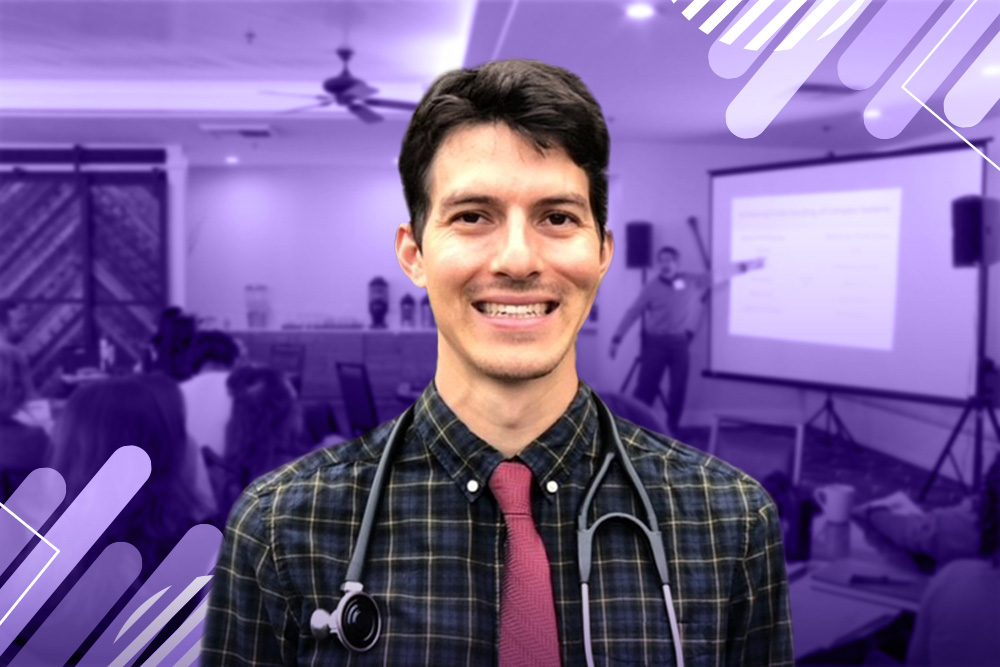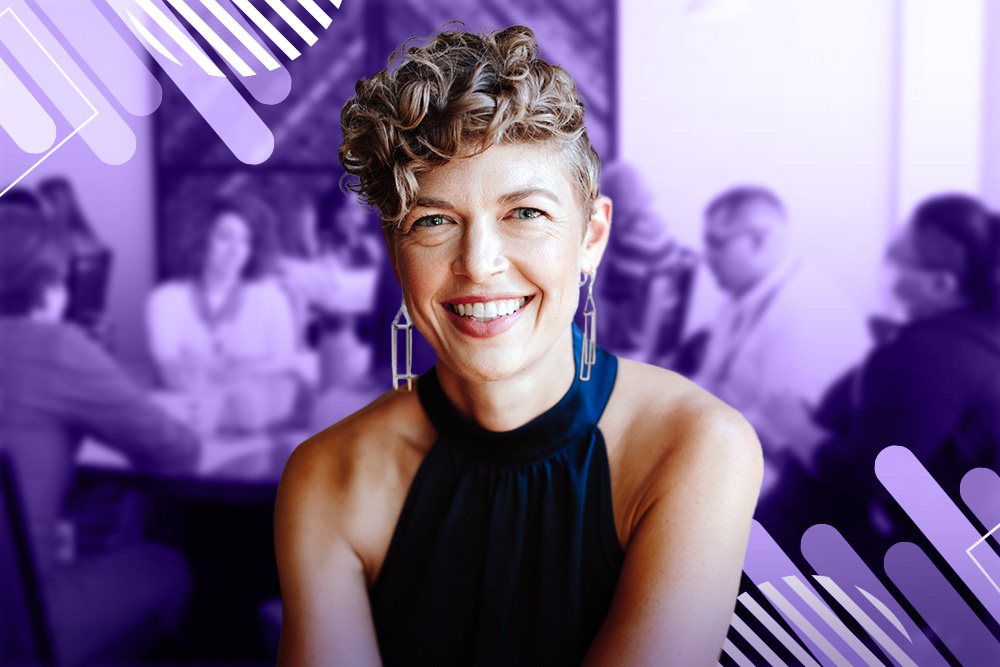
Scholars in discussion duing the Leadership Institute.
As the Leadership Institute continues to welcome applications, we sat down with Antoinette Angulo, the Northwest Public Health & Primary Care Leadership Institute Director, to discuss a key component of the program: the Critical Friends Group (CFG).
Q. What is the Critical Friends Group and why is it such an important feature of the Leadership Institute?
The conceptual framework behind CFG is taken from key components of Cooperative Adult Learning, which acknowledges that each of us has expertise within our lived experience. By emphasizing the value everyone uniquely brings, scholars from various sectors and backgrounds are able to benefit from their peers’ knowledge and experience.
Q. How do the CFGs play out during a scholar’s time in the Leadership Institute?
This programming is quite formulaic and structured. That structure allows scholars to develop trust with one another and be open about their issues, challenges, and concerns with their peers. As far as I know, the CFGs are unique to Region 10’s Leadership Institute. Scholars get a tremendous amount of value from this experience, and the CFGs are consistently the most highly rated activity of the program.
The reality is that if you’re in a leadership role, it can often be very challenging to step back from your day-to-day priorities and practice this kind of reflective learning. We’ve structured the CFGs to help scholars achieve just that. By listening closely to others and leaning into each participant's deep knowledge and expertise, we believe our scholars will be exposed to different and beneficial perspectives.
Q. Who are the faculty facilitators who lead the CFGs?
We have three truly amazing faculty facilitators who I’m so proud to work with.
Yolanda Fong, RN, MN, APHN-BC, currently works as the Administrator for the Kitsap Public Health District. She has an extensive background in adult learning, specifically with training nurses, and listening to and connecting with community members to address their specific needs.
Jennifer Jones-Vanderleest, MD, MSPH, is an attending physician with Public Health — Seattle & King County Jail Health Services. She has a teaching background both as a physician and a public health practitioner. She’s an amazing listener, creates space for those who have historically been marginalized, and brings people together in collaborative ways.
Nicole Sadow-Hasenberg, MPH, teaches in UW’s School of Public Health, and has a long history of working in public health communications. She excels at problem-based learning and is a great communicator and listener.
Q. How are the topics that get discussed chosen?
Typically, a scholar will present a challenge they’re facing in their workplace, and the group will ask clarifying questions. The scholar listens and takes notes while the group explores various ideas. The facilitator helps to keep things on track.
After everyone has had the chance to contribute, the scholar responds to the ideas that resonate with them. Then there’s a quick debrief session with everyone. All scholars are invited to present challenges over the length of the program.
Q. Do you have any final thoughts on how the CFGs can enhance a scholar’s experience during the Leadership Institute?
When I started out with the Leadership Institute, I found myself wondering, ‘Where has this type of learning been throughout all my previous education?’ It was so clear that this is an amazing way to learn. Over the past couple years, as both a facilitator and now the director, I’ve seen so many leaders benefit greatly from having this protected space to dive deeply into reflective learning. I’m a huge believer in these groups and think they’re an amazing way for leaders to grow and develop.
The Leadership Institute’s next cohort will begin in spring of 2025. Learn more and apply for next year’s program.


